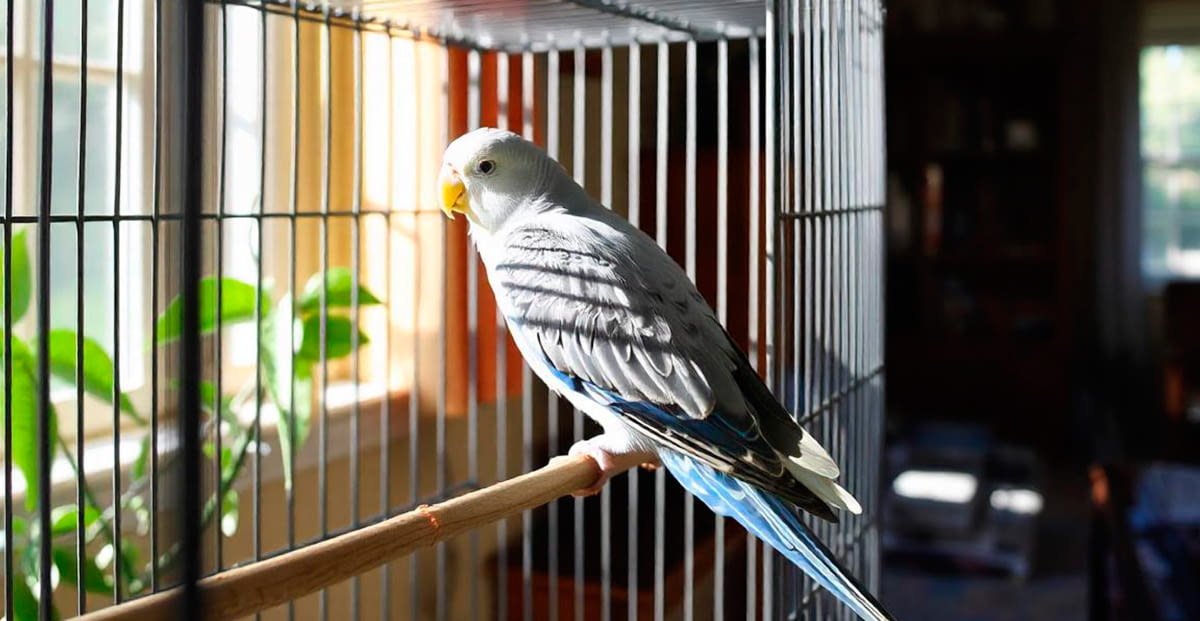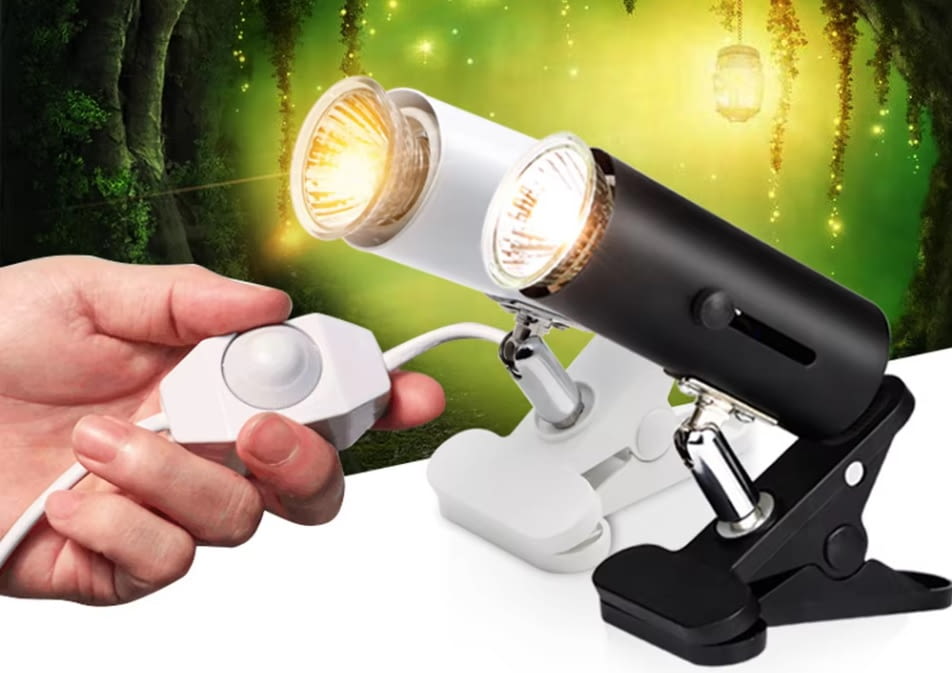
When we think about the needs of our captive birds, we tend to focus on aspects such as food, space or toys. However, something that is often overlooked is the importance of sunlight or, failing that, artificial lighting that mimics its spectrum.
In their natural habitat, birds are constantly exposed to sunlight, which plays a fundamental role in their health and well-being. But what happens when they are in captivity and cannot receive direct sunlight?
While the use of UVB/UVA lights is quite widespread in reptile care, its relevance for birds has not been as popularized, although it is equally essential. Full spectrum light not only influences their ability to see properly, but also key biological processes such as vitamin D3 synthesis.
THE ROLE OF UVB LIGHT IN BIRD HEALTH
Like humans and other animals, birds synthesize vitamin D3 when exposed to UVB radiation. This vitamin is crucial for proper calcium absorption in the body. Vitamin D3 deficiency can lead to serious health problems, such as metabolic bone disease, which weakens bones, or reproductive problems, such as soft-shelled eggs.
A recent study has shown that birds exposed to UVB radiation have higher levels of vitamin D3 in their blood, even compared to those receiving vitamin supplements in their diet. This is because the natural synthesis of the vitamin through sunlight is more efficient and, in addition, does not entail the risk of overdose, since the body naturally regulates the amount of vitamin D3 produced.
WHAT ABOUT UVA LIGHT?
Another vital component of sunlight is UVA radiation. While humans cannot see the UVA spectrum, birds can, as they have special structures in their retinas that allow them to perceive it. If we deprive birds of this part of the spectrum, their vision is impaired, as if we were forcing them to live with limited or even “colour-blind” vision. This can directly impact their behaviour and emotional well-being.
Numerous studies have confirmed that exposure to UVA light is essential for the emotional balance of birds and reptiles. In fact, a lack of this radiation can contribute to unwanted behaviors, such as feather pecking, and negatively affect their reproductive capacity.
If you want your birds to reproduce or simply live a full life, providing them with a full-spectrum light source is essential.

HOW TO ENSURE CORRECT UVB/UVA LIGHT EXPOSURE IN CAPTIVE BIRDS?
Exposing your bird's cage to direct sunlight is certainly the best option, but this is not always feasible. Many owners are unable to do so due to space constraints, climate, or simply because they are not at home during peak sunlight hours. Also, it is important to remember that UVB/UVA radiation does not pass through window glass, so placing the cage next to a window is not sufficient.
To meet this need, the most effective solution is to install a special lamp for reptiles or birds over the cage or space where your pet spends most of its time. Compact fluorescent lamps with a UVB spectrum of 5.0 are an excellent option, as they provide an amount of radiation similar to what a bird would receive in the wild, for example, while resting in the shade of a tree.
These lamps are easy to install and affordable. It is recommended that they remain on for 8-10 hours a day, to simulate the natural light cycle and ensure an adequate photoperiod.
However, it is essential to follow the manufacturer's instructions to avoid overexposure or misuse of the light. Normally, the optimal distance between the lamp and the perch should not exceed 30 cm, to ensure that UVB radiation is effective.
ADDITIONAL BENEFITS OF USING UVB/UVA LAMPS
In addition to helping with vitamin D3 synthesis and improving birds' vision, full-spectrum light has other benefits. It can improve their mood, encourage natural behaviors such as singing or courtship, and contribute to the regulation of circadian rhythms, helping birds establish a healthy sleep cycle.



